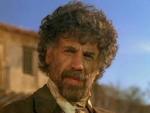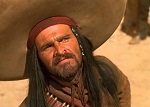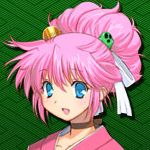A really tidy post (From December actually) about all the things wrong with THE LAST JEDI from the angle of the narrative in general (and entrenched racism and sexism). I've copied and pasted it because the original site it's in white font on black background and hurts ones eyes, but I'll link it at the end for anyone that wants to go read it as it was posted there and to give credit.
This article contains spoilers for Star Wars: The Last Jedi.
Currently being regarded as the most controversial Star Wars film to date, fans of the popular franchise seem to have settled into two groups: this is either the best Star Wars film ever made, or the worst. Cinematically speaking, the movie has stunning visuals and a great cast of actors, but that’s not the problem.
The problem is that while The Last Jedi is being branded as the most feminist Star Wars film to date, its “feminism” seems like a cheap marketing ploy to appeal to a wiser audience and downplays some of the key problems within the film itself: it’s built on a foundation of sexism, misogyny, and racism. In other words, if you’re anything other than a white male, this film isn’t made for you.
And director Rian Johnson hasn’t exactly been shy about his opinion regarding the film’s white male villain, Kylo Ren. Rian told Empire Magazine that, “We can all relate to Kylo: to that anger of being in the turmoil of adolescence and figuring out who he’s going to be as a man.”
The only problem is that we can’t. Despite Rian’s insistence that this film is about the “transition from adolescence into adulthood,” Kylo Ren is already a well-established adult with a history of bad choices. We know from the canon Star Wars novel Bloodline, written by Claudia Gray, that Kylo Ren was at least 23 years old when he destroyed Luke’s Academy. At this point, he’s already an adult capable of making his own choices.
The film reveals that the final push towards the “dark side” was when Ben Solo awoke to see Luke standing over him with his lightsaber while he was sleeping. Without considering the possibility of a miscommunication, Ben Solo brought the roof down on the last Jedi, and then systemically went about converting or eliminating the rest of the students in Luke’s school before burning it to the ground. From there it can be presumed that he officially took on the role of Snoke’s apprentice, dubbing himself Kylo Ren as he joined the ranks of the First Order.
The problem is that it doesn’t matter. There’s nothing relateable about being a white adult male who decides to sign up with a Nazi organization and the very premise that we should try to have sympathy for such a character is chilling, especially when you consider that he murdered Han Solo not more than a week prior in film time.
But there’s another element to Kylo Ren that makes him harder to relate to. He comes from a place of privilege in society. Ben Solo was born to two war heroes, and while those might be big shoes to fill, there’s nothing that would indicate that Han and Leia were terrible parents to their son. In The Force Awakens, Leia admits that she sent Ben to train with Luke because she feared Snoke’s growing influence on her son (turns out, she had a right to be concerned). In Chuck Wendig’s canon novel, Empire’s End, from the Star Wars: Aftermath series, we see Han excited, if not a little daunted, about the possibility of becoming a father.
In other words, there’s nothing relateable when you think about a wealthy white male growing up sure of his place in the world and deciding to leave it all behind to join a fascist organization.
Compounding on this, there is someone who is relateable: Finn. Finn was not born from a place of privilege. If anything, we still know very little about Finn’s origins aside from the fact that he was abducted from his parents and raised to be a Stormtrooper. Despite years of conditioning and being ranked as the top cadet in his class, Finn was able to maintain his sense of self and when it came down to his first battle, he decided not to shoot and kill an unarmed villager.
This is the character that most people should be able to relate to. Finn is a character that isn’t sure of his place in the world. He grew up with the First Order and left everything that he knew behind him in order to try to do what he thought was right. Although he initially planned to seek a quick exit from the conflict at Maz’s castle, he didn’t hesitate to rejoin the struggle when he discovered that Rey was in danger. Finn spent most of his time in The Force Awakens running away from something – the First Order, from Jakku, from delivering BB-8 to the Resistance, but we see his progression throughout the movie to the point where he risks his life for Rey and helps the Resistance destroy the Starkiller base. At this point, Finn has rightfully earned his status as a hero.
Until The Last Jedi where Finn is again painted as selfish and cowardly, and the film does not shy away from this fact. Initially branded as a traitor by Rose when he tries to get the beacon as far away as possible to prevent Rey from falling into a trap, he is consistently belittled by Rose throughout the film. She consistently calls him cowardly and self-centered, and Finn’s characterization seems to shift in order to fit this description. When Finn is explaining his plan on hyperspace tracking to Poe, he is excited and confident: he can do this. When he gets to Canto Bight, he suddenly regresses, becoming immature and distracted by the glitz and glamour all around him. Finn knows what’s on the line. Rey is on the line. Poe is on the line. The Resistance has less than 24 hours, and yet he suddenly becomes bumbling and distracted.
This becomes Finn’s character throughout the rest of the film. Brash, impulsive, and worse, being frequently portrayed as the butt of everyone’s jokes. When we first see Finn, he is wandering about the halls of the Resistance in nothing but a bacta suit, as if Finn has suddenly forgotten how to care for himself. The film plays into the stereotypes that many people have about black male individuals. Instead of being treated as the hero of the Resistance, Finn is relegated to a comedic side role based on slapstick humor and unfunny comedy that ultimately doesn’t contribute anything to the plot.
In other words, Finn’s side plot reflects the film’s stance of diversity: we’ll wave it in your face for a few minutes before we wave it aside to make way for the two white protagonists. It’s a bold statement, but not untrue. Rian Johnson first joked that it would be “funny” to leave Finn in a coma for the entire film: “We did at some point joke that it would be great to just have him be in a coma for the whole movie and keep cutting back to him.” He explains that each of these cuts back to Finn would have him uttering some nonsense in his unconscious state, and at no point in the entire run time of the movie would the former Stormtrooper wake up.
When John Boyega first accepted the role of Finn, JJ Abrams told him that he was going to be the new star of Star Wars. Rian Johnson blatantly admitted that it would be “funny” to simply delegate the black lead to the sidelines, where he doesn’t have more than a few scenes of incoherent babbling to serve as comic relief.
Not to mention, it’s Rose who ultimately has to teach Finn about the seedy belly of Canto Bight and how it operates: through slave labor. Another character shouldn’t have to explain to Finn, of all characters, the tortures and ills of slavery. After all, that’s the only life Finn’s known, taken as his family and raised in a life of servitude as a Stormtrooper to the First Order.
The underlying racism in The Last Jedi does not, unfortunately, stop with Finn’s character. We know a lot more about Poe Dameron’s character from the popular Poe Dameron comic series that highlights Poe’s adventures with Black Squadron before they find Lor San Tekka.
In fact, Poe’s arc is highlighted by its racism, as Poe’s character is reduced to a mere stereotype of his ethnicity. From the Before the Awakening, piloting flight logs, and comic series, we have a complete picture of who Poe is as a character. He tells L’ulo, “I’m the best. But you’re the best too” which highlights who he is as a person. He is a gentle soul that sees the best in people, trusting Finn not only to help him escape, but to lower the shields on the Starkiller Base when he said he could. Poe is a genuine nice guy who would give the shirt, er, jacket off their back to help a stranger.
And we see absolutely none of this in The Last Jedi.
Poe is described as rash, dangerous, and aggressive by Vice Admiral Holdo, played by veteran actress Laura Dern. She’s dismissive of him, and while a part of it does play into more harmful stereotypes that I’ll get into later, in this instance, it’s hard not to. In the opening first scene, Poe is prepared to let everyone, everyone die just to take out a First Order Dreadnought. Even though successful, Poe seems more focused on the success of his mission than the countless deaths of his fellow Resistance fighters.
And that is not who Poe Dameron is. To say so makes a complete mockery of a fantastic character whose character has already been set and esteemed by fans. Changing his character to comply with stereotypes in order to try to advance the plot isn’t “moral ambiguity” or “challenging the character” – it’s just bad writing.
In short, Poe becomes aggressive, dangerous and hotheaded, all to fulfill the stereotypical role that the narrative wants him to play. His character attitudes are changed in order to fulfill a plot device, and that’s the conflict set up between himself and Vice Admiral Holdo.
This conflict is disappointing. It focuses on a female leader putting an aggressive, chauvinistic male in his place. It’s supposed to be empowering, but it’s not, especially when you have to have one character act so differently in order to get to that point. The problem is that the kind of feminism this movie is preaching is white feminism, which is dangerous in and of itself.
But what does white feminism mean in this case? Vice Admiral Holdo, and even Rose, both undermine and belittle Finn and Poe, treating them like children. This concept of infantalization upholds racist stereotypes of black and Latino men being both incompetent and irrational. In Poe’s case, it works to also uplift the alleged moral superiority of white women over people of color. And it’s not feminism.
It’s just disgusting.
Holdo is held up as someone that people in the Resistance are supposed to respect as a leader, and yet she refuses to tell the very people she’s leading what their plan is, citing Poe’s earlier reckless actions as an excuse. Even according to the Navy’s Leadership Principles, keeping your people informed is the second principle on the list. In other words? It’s pretty important. Vice Admiral Holdo’s refusal to do so is driven by petty motives, and while Poe is painted as ridiculous and childish the entire movie, he’s actually proven right when the First Order does the very thing he was afraid they would do.
One of the “lessons” from Poe’s story line is you should always blindly trust authority figures even when they provide no valid reason for doing so, and this is an extremely dangerous and topic example to set, especially in today’s society when people of color are so often made targets of police brutality, which again feeds back into the movie’s underlying theme of systematic racism.
Holdo herself seeks redemption from her mistakes by turning around and ramming her ship through theirs – an admittedly cool move, although it would be cooler had we not seen Admiral Raddus suggest the idea of plowing through a ship no more than a year earlier – and dies so that Leia can explain to Poe that Holdo was a good leader (without really stating how) because she was more concerned with fulfilling the mission without getting credit for it.
The problem with this? It means that Holdo had to die in order for Poe to “understand” what it meant to be a leader. This doesn’t work for two reasons. For one, Poe is a decorated Commander who had already served as a leader in the Republic Navy before joining the Resistance. Painting him as a cocky flyboy with a chip on his shoulder just doesn’t work when it goes against everything we’ve been told about his character. The “lesson” Poe was supposed to learn was one he already knew.
The second problem is that it meant that Holdo had to die in order for Poe to learn this lesson. In other words, we’re back to that age-old trope: a woman had to die in order to advance the plot/characterization of a male character.
And that’s where we get to our final topic: sexism. For a movie that preaches itself as so overtly feminist, it is rich with sexist undertones that are immediately apparent on the surface. Most of these are notably in the interactions between Rey and Kylo Ren, but there’s another character that I wanted to touch upon first. Rose Tico.
Despite Kelly Marie Tran’s boundless enthusiasm for her role, Rose Tico is ultimately underwhelming as a character. Despite mourning the death of her sister, her ultimate presence in the film seemed to be reduced to a girl with a bad crush on Finn.
I’ve already touched upon how poorly Rose treats Finn, but Rose herself seems to have gotten the short end of the stick in terms of the plot. Her character exists only to serve Rian’s image that your heroes aren’t what they seem, tazing Finn when she sees him trying to escape. From then on, Rose’s status seems to be downgraded to “Finn’s crush” as seen in the description of this deleted scene:
Originally, the film spent some more time clarifying the dynamic between Rey and Finn, and further setting up Rose’s crush on the Resistance “hero.” Rose chastises Finn for “pining for Rey,” which Finn quickly denies, claiming that he was “raised to fight” and that he finally found something to fight for in his friend, Rey. “Whatever,” responds Rose with a hint of jealousy.
Rose’s constant nagging of Finn and being catty about Rey enforces a negative female stereotype that has no business in a Hollywood blockbuster that claims to be catered to young girls, especially when it seems that Rose’s role has been reduced to working the love triangle dynamic between Finn and Rey. This seems like it could only lead to a destructive end for the character, especially considering how she attempts to save Finn’s life by almost sacrificing her own at the end of the film. Rose presents us once again with the trope that a female character must sacrifice herself in order to advance the plot of the male character, in this case, to prove her love for him. It’s a frustrating trope, made all the more exhausting when you consider what her role might be in the next film.
If you focus on the look Rey gives Finn putting a blanket over the unconscious Rose, it sets up tension for the next film: assuming Rey and Rose engage in competition for Finn’s attention, putting the two girls at odds with one another.
Because if the sexism in this movie wasn’t blatant enough, that’s just what Star Wars needs: two girls fighting over a guy. While frustrating to watch, it’s also extremely degrading to both characters and reduces both of their arcs into nothing more than instruments to direct the story of a male character.
Hopefully JJ will take the next episode in a different direction, but the damage that has already occurred in this film cannot be understated. There is, unfortunately, a lot of ground to cover regarding Rey’s story, so I’m going to start with the most visually striking one: Rey’s costume.
In The Last Jedi, Rey adopts what has been dubbed her “Jedi Training” outfit, trading out her three signature buns for a simpler hairstyle and trading out her light Jedi garb for a bit of a darker color. It’s a way for Rey to separate herself from the girl we saw crying desperately over her parent’s retreating ship on Jakku, keeping the same appearance a decade later in the hopes that they would come back to recognize her.
Many who speculated that Rey would undergo this physical transition after she discovered the true origin of her parents and worked to free herself of that disappointment found themselves disappointed. Rey didn’t change her clothes and her hair after she learned about her parentage from Kylo Ren, she learned about it after.
Despite being wet from the rain, another reason for this change is that she was shipping herself off in a box to see Kylo Ren, prompting those who want them to be romantically involved to start citing the Snow White parallels. It’s not hard to believe that the reason for this change was to make Rey appear more feminine. With her hair down, she looks more like a girl and less like the hardened warrior who had to fend for herself back on Jakku.
But wait, wouldn’t that mean that Rey’s entire role in the movie basically focused on developing Kylo Ren as a character? It does, and you wouldn’t be wrong to think that way. Even during Rey’s training sessions with Luke, the conversation is always geared back to Kylo Ren in some way, whether it’s Luke talking about his past or Rey assuring Luke that she won’t end up like Kylo. Either way, we hear Kylo’s name spoken more times between them than we actually hear anything about the Jedi or the things that Luke learned about the Force on his travels (say, Pillio, perhaps?)
It becomes clear early on that despite Rian Johnson saying that the film isn’t about what the fans want, that certain scenes were added in to appeal to a certain demographic. For example, Adam Driver’s uncomfortable shirtless scene?
Rian himself says that the scene had a “specific purpose” of creating an increasing feeling of “uncomfortable intimacy.” In other words, Kylo Ren’s shirtless scene is basically synonymous with a dick pic: no one asked for it, but there it is, one of the most subtle forms of sexual harassment. Think about this another way: if Rey’s character was really a boy, would the shirtless scene still be present? Or necessary?
Hint: it’s not.
The fact that Rey’s character only seems to exist to play a role in Kylo’s story is concerning, considering that she is touted as the protagonist of the sequel trilogy. Even though she witnessed him murder Han Solo no more than a few days prior, she becomes emotionally intimate with him pretty quickly, opening up to him about the strange experiences she had in the “dark place” beneath the island.
And therein lies the problem. When they touched hands, Snoke gave her a vision of Kylo Ren turning back to the light side to compel her to rush off to the Supremacy in the hopes that she could turn Kylo Ren back to the light and turn the tide of the war.
There’s only one problem with that.
It’s not her problem.
Rey was a civilian. As Kylo Ren himself told her, “You have no place in this story.” She has no part in the conflict between the First Order and the Resistance, and yet she was swept up in it all the same. It shouldn’t be necessary for her to rush off and turn the tide of the war, and while it fits with the Star Wars theme of how one person can make a difference, the trope that a woman must rush off and sacrifice herself in order to progress a man’s character and offer him redemption has been a long-running frustrating trope. If Rey wants to help the Resistance, that’s her choice, but it shouldn’t be necessary to rush off and try to save the person who kidnapped and abused her.
It’s one of the things that makes any sort of Kylo Ren and Rey team-up so off-putting. In The Force Awakens, he kidnaps her and invades her mind in order to try to find the location of the map. After she escapes, he confronts her in the forest, throwing her into a tree several feet up in the air in a move that could have potentially killed her. Then she wakes up just in time to watch him slice through Finn in a move that could have killed him.
Oh, and did I forget to mention how she watched him murder a defenseless Han Solo right before her eyes only moments before? The man who, as Kylo himself taunted, presented a father figure that she never had?
In other words, Rey has absolutely no reason to trust Kylo Ren. She has no reason to even want him to get redemption. For all of Rian’s talk about how he wanted to keep this film “morally grey,” trying to make a genocidal murderer relateable, or even redeemable, was not a step in the right direction. Wouldn’t it have been more compelling to watch Rey wrestle with the ramifications of eliminating Kylo Ren once and for all? Instead of trying to find redemption for the dark side, wouldn’t it have been far more interesting to explore a situation in which Rey realizes that good people must sometimes do bad things for an overall good to result?
Perhaps, but that’s not the film we got. Instead we got a team-up between Kylo Ren and Rey where, moments after they work together, their alliance is quickly severed. Rey asks Kylo to call off the attack that is sure to eliminate the Resistance, including Finn. Kylo, however, refuses and tells her to move on and join him in ruling. He tells her, “You come from nothing. You’re nothing. But not to me.”
Fortunately Rey grabs the lightsaber and rejects his offer, and the final scene of her closing the Millennium Falcon doors on him seems to confirm that she has severed her connection for good. The problem? The damage has already been done.
Rian Johnson has already set up the Kylo Ren and Rey dynamic to be potentially romantic, between the shirtless scene, the hand touching scene, to be filled with an uncomfortable kind of sexual tension between the girl that declared to Maz, “I don’t want a part of any of this” and the man that murdered his father.
As troubling as that notion is, it does get worse. Kylo Ren tells Rey, “You come from nothing. You are nothing. But not to me.”
The problem is that Kylo Ren’s frequent gaslighting and emotional manipulation throughout the two films reaches its climax: he has discarded Snoke and wants to use the powerful, yet naive Rey, to further his own power. Still, the sexual if not romantic implications are there, pushed along by a group of shippers that call themselves “Reylos,” who desperately seek for Rey to redeem Kylo through, well, you get the idea.
There are several problems with this. One of the first ones is the fact that Kylo Ren is 32 years old, whereas Rey is only 19. While many are quick to claim that age is just a number, Rey is emotionally immature, having been isolated on Jakku for most of her life. There is absolutely no good reason to try to push her into any sort of relationship with someone who is so destructive, especially when the sole reason for doing so is to help Kylo Ren find redemption.
The line, “You’re nothing…but not to me” is a quote that unfortunately most women have heard far too often. It’s an emotional manipulation tactic in order to try to isolate a woman from her friends and family until she only relies on her abuser for support, and this is exactly what Kylo Ren is trying to do here. With Luke unwilling to teach her, Kylo wants Rey to rely on him, and solely him, so that he can use her power and manipulate her to further his own goals (which is to lead the First Order to…conquer the galaxy? It’s not quite clear.)
It’s a frightening message, especially when you think about who this movie is supposedly marketed to. Think about how many children dressed up as Rey for Halloween. How do we explain to girls that the man who killed Han Solo, the man who emotionally manipulated her and tried to use her just to validate himself, is the person that she should ultimately fall in love with? It paints a dangerous picture that girls internalize before they have enough experience to make their own decisions regarding their own relationships.
Remember Edward Cullen’s creepy manipulation in Twilight? Apparently that’s crept into Star Wars as well.
And this gets to the heart of the overall problem. The Last Jedi is ultimately soaked in sexism, misogyny and racism, and yet Kathleen Kennedy and Bob Iger widely praised the film before its release. How can Kathleen Kennedy, who said that she was proud to have a feminist icon in Rey, be willing to reduce Rey’s entire story to “the love interest?” If the executives and storygroup approved such blatant racism and actively worked to rewrite characters in order to fit their stereotypical narrative, what hope do we have that the next trilogy will be better, especially when they gave Rian Johnson full control over its content?
Rian himself believes that Darth Vader was worse than Kylo Ren, and while that is probably a conversation as controversial as the movie itself, Rian still wholeheartedly believes that despite what happened in The Last Jedi, that Kylo Ren can be redeemed. It shows that the storyline that JJ Abrams set up has been reduced to simply furthering the narrative of the white villain, and the rest of the characters are simply players in his story, which is why they exist as nothing more than stereotypes in Rian Johnson’s version of Star Wars.
And that’s the disappointment. While The Force Awakens received criticism for being too similar to its predecessor, A New Hope, JJ did set up some interesting and mysterious characters. While Captain Phasma’s role was ultimately underwhelming, fans were assured that she would have a much bigger role to play in Rian Johnson’s world.
Unfortunately, we all know how that turned out.
Phasma’s quick dismissal wasn’t the only disappointment. Snoke was killed off without any satisfying explanation to who he was or even what he wanted the First Order to do. The Knights of Ren, which were mentioned in The Force Awakens and played a role in Rey’s vision, disappeared from the narrative entirely, instead being replaced by Rian’s Praetorian Guards.
For many, Luke Skywalker’s return was the biggest disappointment. Mark has made no secret in recent weeks citing how he didn’t agree with Rian Johnson’s vision of Luke and how he wished George Lucas had directed the sequel trilogy instead, a mere three days before The Last Jedi hit theatres. It fits into Rian Johnson’s grim version of reality: our heroes can be defeated, and idolizing legends is ultimately unsettling and disappointing when faced with reality.
But by disappearing into the Force, did Luke not himself become a legend, the very thing that Rian seems to chide against? The film’s “message” seems to give audiences such mixed signals, it’s not surprising that audiences claim that the film seemed better after a second viewing: basic elements of the plot just doesn’t make sense, like how the First Order has suddenly developed hyperspace tracking despite the film only taking place a few days after the events of The Force Awakens.
There are other plot holes that point out the flaws in logic in the story: where did Rey learn to swim on Jakku? How can bombers drop bombs in space when there’s no gravity for the bombs to fall? Since space exists in three dimensions, why didn’t the First Order just have a ship drop out into hyperspace in front of the Resistance Star Cruiser and blow it to bits? And why was General Hux, a serious, straight-faced villain in The Force Awakens, who ordered the destruction of the Hosnian System, delegated to a comedic side role who’s only function was to serve as a cheap laugh and be the butt of an awkward your mom joke? Instead of using the antagonism between Kylo Ren and General Hux to show the crumbling of the First Order and how the small band of Resistance heroes we’re left with at the end of the movie might stand a chance against them, it seems that the First Order’s army, which was flowing with Nazi imagery in The Force Awakens has just been reduced to campy slapstick humor.
Despite these obvious problems, the most glaring ones still remain in the fact that Star Wars is a film that claims to market itself to the people it exploits and ultimately rejects. It’s no wonder that merchandise and ticket sales have dropped when the movie is back to focusing on a white male lead, like so many other before it. Kylo Ren tells Rey that you have no part in this story, that she doesn’t belong – something that minorities, women, and the LGBTQ+ community have been hearing their whole lives.
But if this movie isn’t made for these people, then why does Disney keep trying to insist that it is? Most people who have been critical of the film have been met with the chorus of, “You’re just upset that you didn’t get what you wanted” as if it’s somehow wrong to expect more from what you receive. The story was set up so that we would get answers. How someone as powerful as Snoke managed to manipulate Kylo Ren from the womb and grow the First Order from the seeds of the Empire, Phasma’s increased involvement, and especially the question of Rey’s parentage, has been dangled in front of us like a carrot on a stick for the past two years, and it’s ultimately unsatisfying to see all those threads being clipped off and brushed aside with a, “Oh! It didn’t even matter!”
If it didn’t matter, then why feel the need to keep up the secrecy and suspense for two years, when the final product is ultimately disappointing? (Point not withstanding, Kylo Ren tells Rey that Snoke showed him that her parents were buried in a pauper’s grave on Jakku. Why her parents would actually return to Jakku, or whether Snoke was actually telling the truth, is a matter that JJ has yet to resolve.)
It’s not wrong to be a critical consumer of the media that we consume. It’s not wrong to say that we deserve something better. Minorities and women can and should demand to be treated with more respect than they were shown in this film, and the overwhelming amount of racism and misogyny in this film is something that most avid fans of the film have not provided an answer for.
People who claim that The Last Jedi is a good movie, while at the same time acknowledging how deeply misogynistic and racist it is, are contributing to the larger problem we have as a society. It’s saying, “I know it’s racist and misogynistic, but it entertained me, so I’m okay with it.”
It might just be fiction. It might just be a story. But all media we consume influences us, subconsciously or not, in ways that we may not even be aware of. Star Wars may not be real. These characters may not be real.
But it still affects how you feel, and that seems pretty real to me.
Link to actual article.
EDIT: Oh, and I'd like to add something that didn't jump out at me when I watched, but in hindsight it really does...The so-called protagonist of the film (Rey)....does not appear in the 3rd act, except to show up with the falcon, lift some rocks so everyone can escape (although why Leia doesn't lift those rocks is strange to me). The 3rd act is all about Kylo and Luke (and the Crait battle I guess). But yeah, Kat Kennedy's "Rey is our new Jedi hero!" ....is largely absent from the denouement of her own films' last act. Apropos of nothing, that's quite interesting and shows how the protagonist for Rian Johnson...was the mass-murderer Kylo Ren, not Rey.
This post has been edited by QuickTidal: 27 March 2018 - 03:09 PM
"When the last tree has fallen, and the rivers are poisoned, you cannot eat money, oh no." ~Aurora
"Someone will always try to sell you despair, just so they don't feel alone." ~Ursula Vernon
 QuickTidal, on 07 February 2018 - 03:00 PM, said:
QuickTidal, on 07 February 2018 - 03:00 PM, said: Abyss, on 07 February 2018 - 02:31 PM, said:
Abyss, on 07 February 2018 - 02:31 PM, said:
 Help
Help




















